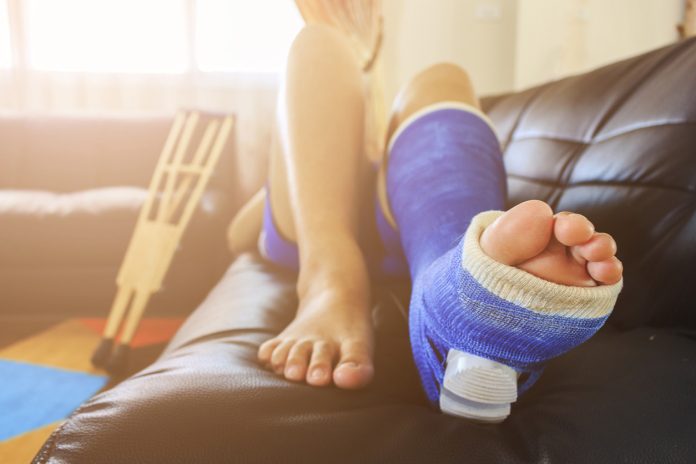After all that training don’t let injury get in the way of your exercise goals. Whether you’re running a marathon, competing in your first 5K or looking to trying a new athletic experience a stress fracture can pull all miles and hours of training into a screeching halt. You’ve been diligent about eating well, but did you know stress fractures can be halted by simple nutrition?
What causes stress fractures?
Stress fractures are caused by doing too much exercise too soon, a common experience in new athletes. If you’re training correctly you increase distance, strength training and endurance a little at a time or a period of weeks. If you’re jumping right into long exercise session you’re putting your bones and muscles at risk. Slowly increasing your strength and endurance is a better way to keep your body strong and stay motivated.
A good example of increasing strength and endurance is when training for a 5K (3 miles) is to pick the number of weeks you want to train for, usually 12 weeks, and increase your mileage by only 10% every week. A way to increase your risk of stress fractures and becoming burnt out and exhausted is trying to run a 1-2 miles every time you run.
Stress fractures can be compounded by the pounding your bones take when you run or bike. Your muscles are supposed to protect the bones with every step by providing strength and support. But when muscles become weakened from exhaustion the bones themselves are left to either take the pressure from exercise or break…
Stress fractures can be prevented from a slow and steady exercise routine AND by making your bones as strong as possible. Strong bones come from the inside out so what you eat can help the tibia, fibula and femur bones keep from cracking.
Start with a healthy serving of calcium…
You’ve heard it at least 100 times in your life; “calcium builds strong bones” or “milk does a body right”. And it’s true, calcium is SO important for strong bones. The mineral calcium is stored in the bones and as old bone is remodeled and new bone is made calcium is a part of this process. If there isn’t enough calcium in the body or diet then bones take a beating by becoming weaker and weaker instead of stronger.
Calcium isn’t found in just milk and dairy products, in fact a huge amount of calcium can be found in vegetables. Green veggies like spinach, kale, lettuce, broccoli, Brussel sprouts and more all contain calcium and other vitamins and minerals. And the fiber found in vegetables will keep your body full for a long time. There’s no reason to rely on milk alone for calcium. Remember to try other sources for a complete diet.
Why Vitamin D…
If you’re getting all that calcium – from dairy and vegetables you think you’ve got your strong bones covered, right? Well you might be missing one major nutrient that helps calcium be at its best. Vitamin D, the sunshine vitamin, is known for its uses as an antioxidant but its relationship with calcium should be its major role. Vitamin D helps the body actually absorb the calcium it has stored. So without vitamin D stored calcium would remain in the body, but it would NOT be used to build bones. Without your parathyroid gland telling the body to release the active useful Vitamin D, Vitamin D would remain stored as well as calcium and your bones would suffer, specifically the tibia and fibula leading to stress fractures.
The Journal of Foot & Ankle Surgery notes that “600 female Navy recruits … were found to have a twofold greater risk of stress fractures of the tibia and fibula” and these recruits had “a vitamin D level of less than 20 ng/mL compared with females with concentrations above 40 ng/mL”. Vitamin D Council states a sufficient range of Vitamin D is 40 to 80 ng/mL (this denotes the amount of Vitamin D found in a milliliter of blood) and this is acquired from diet and sunlight.
Look to increase your vitamin D intake by eating fatty fish like salmon or anchovies, drinking Vitamin D fortified milk and getting 15 minutes of sunlight per day.
Keep those stress fractures at bay and keep your workouts going! Use Vitamin D and Calcium to strengthen bones and strength training, rest and nutrition to keep muscles strong. You can reach any fitness goals – 5K’s or marathons – you put your mind to!















